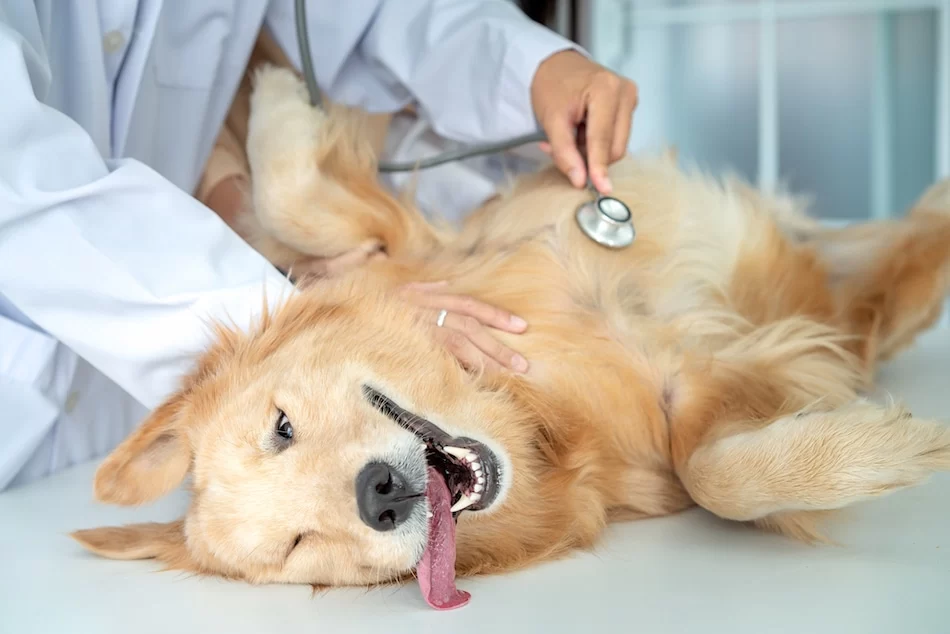Understanding Your Pet's Wellness Exam
As a pet owner, one of the most important steps in ensuring your furry friend’s well-being is scheduling regular wellness exams with your veterinarian. But what exactly happens during a wellness exam, and how can you prepare? In this article, I'll take you through what to expect during your pet's check-up, why it matters, and how to make the experience less stressful for both you and your pet.
What is a Wellness Exam?
A wellness exam is a comprehensive health check-up that veterinarians perform to assess your pet's overall health and prevent future health problems. Whether you have a cat, dog, or any other pet, regular wellness exams are crucial to ensuring they live a long, healthy life. The exam typically includes a physical examination, vaccinations, parasite screening, and may involve blood work or other diagnostic tests, depending on your pet's age, breed, and health history.
Why is it Important to Schedule Regular Wellness Exams?
Regular wellness exams help identify potential health issues before they become serious problems. Early detection is key in treating many health conditions, from chronic diseases to hidden infections. For example, I remember when I brought my dog Bella in for her routine check-up; the vet discovered a slight heart murmur, which, though minor at the time, led to early treatment and management. Without that visit, we might not have noticed the problem until it was too late.
What Happens During a Typical Pet Wellness Exam?
During your pet’s wellness exam, the veterinarian will conduct a thorough examination to evaluate your pet’s health. Here's a breakdown of what typically happens:
1. Physical Examination
The vet will begin by checking your pet’s physical condition. This includes:
- Checking the weight and body condition
- Examining the eyes, ears, and mouth for any signs of infection or dental issues
- Feeling the abdomen for signs of discomfort or organ abnormalities
- Checking the coat and skin for any parasites, wounds, or abnormalities
- Listening to the heart and lungs to detect any murmurs or irregularities
2. Vaccinations and Parasite Prevention
Vaccinations are a vital part of your pet’s wellness exam, especially for puppies and kittens. The vet will ensure your pet is up-to-date with necessary vaccines, protecting them from diseases like rabies, distemper, and parvovirus. The wellness exam is also a good time to talk about flea, tick, and heartworm prevention, as well as deworming treatments. Make sure you discuss your pet’s lifestyle with the vet to determine the best preventive care plan.
3. Blood Tests and Laboratory Work
Depending on your pet's age and health status, the vet may recommend blood work to evaluate organ function, detect infections, or check for common diseases such as diabetes. Routine blood tests can be an excellent way to spot health issues early. For example, senior pets often have blood work done to monitor kidney function and liver health, which can deteriorate with age.
Preparing for Your Pet’s Wellness Exam
As a responsible pet owner, it's essential to prepare for your pet's wellness exam to ensure it goes smoothly. Here are some tips that can help:
1. Keep a Health Journal
Before the appointment, it’s helpful to keep track of any changes in your pet's behavior or health. For instance, has your pet been eating or drinking more than usual? Have there been changes in their activity level? Having this information ready can help the vet identify any potential issues more quickly. If your pet has had any recent behavioral changes, be sure to mention them.
2. Bring a List of Medications
If your pet is on any medications or supplements, make sure to bring a list with you. This is especially important if you’ve recently changed medications or if your pet has any allergies. Your vet needs to know what your pet is taking to avoid interactions with any new treatments or vaccines.
3. Have Questions Ready
Don’t be afraid to ask questions! If you have concerns about your pet's health, behavior, or diet, your vet is there to help. Whether you’re worried about a change in their appetite or wondering about the best food for their age and breed, a wellness exam is the perfect time to ask these questions and get expert advice. I remember when I first brought my cat, Whiskers, in for her exam, I asked the vet about her sudden weight loss, which turned out to be a sign of an underlying thyroid issue. Without that conversation, we might have missed it!
What Happens After the Wellness Exam?
After the exam, the vet will review the findings with you, discuss any necessary treatments or follow-up visits, and provide recommendations for maintaining your pet’s health. If any tests or lab work were conducted, the vet will explain the results and outline the next steps. If your pet needs any vaccinations or parasite treatments, these may be administered right away, or the vet will schedule a future appointment.
How to Keep Your Pet Healthy Between Visits
Once the wellness exam is over, it’s important to maintain the health plan your vet has recommended. Keep your pet on a healthy diet, stick to regular exercise routines, and monitor for any changes in behavior or health. Regular at-home grooming and parasite prevention can also help keep your pet happy and healthy. Don’t forget to schedule your pet’s next check-up as recommended by your veterinarian to ensure that they remain in top shape!
In conclusion, a wellness exam is essential for the long-term health of your pet. By understanding what to expect, preparing in advance, and keeping an open line of communication with your vet, you’ll be ensuring that your furry friend stays healthy, happy, and well cared for. Whether it’s your first time or your pet’s tenth visit, these exams are key to preventing major health issues and providing your pet with the best quality of life possible.












